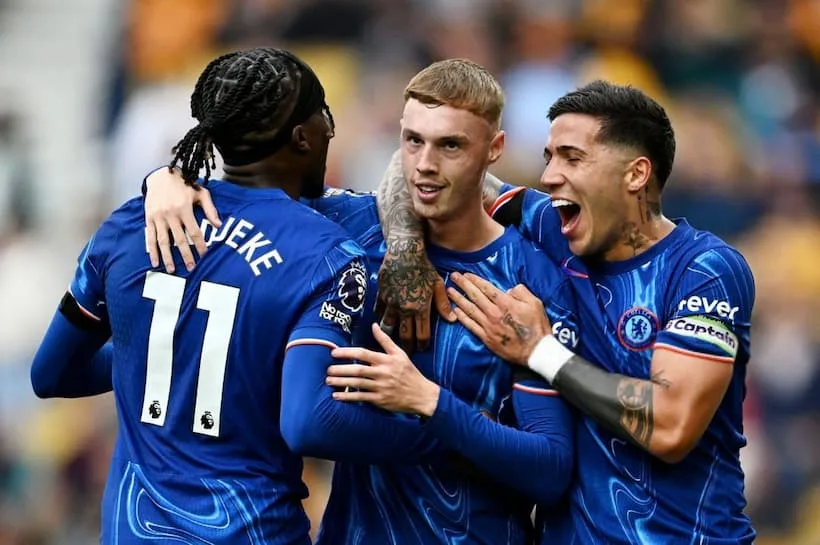In an era where digital resilience in sports is becoming just as crucial as physical toughness on the field, Cole Palmer has emerged as a striking example of how modern athletes are navigating the online world. After recent criticisms and online trolling, Palmer delivered a bold statement both on and off the pitch, taking a direct stand against “idiots and trolls” who question his commitment and performance.
The rising star, who has been instrumental in his team’s recent successes, spoke candidly about the emotional toll of online abuse in football. Palmer’s resilience not only highlights the growing mental strength of young players but also signals a shift in how athletes manage their digital identities in an increasingly connected world.
Backing Palmer publicly was head coach Enzo Maresca, who didn’t hold back in his praise, describing the young midfielder as a “top professional” and someone who represents the future of the team—both in talent and temperament. In doing so, Maresca shed light on a larger issue that continues to plague professional sports: the impact of social media on player wellbeing.
The Pressure of Performance Meets the Weight of the Web
Athletes like Palmer are no longer judged solely by their performance on the field. With the constant glare of social media, they face scrutiny, speculation, and often slander, 24/7. The dual expectations—delivering peak performance while managing personal image in a digital space—are creating new demands for digital resilience in sports.
Palmer’s public rebuke of his critics wasn’t just about personal frustration; it was a statement of empowerment. He addressed the hostile online culture that surrounds athletes and made it clear that while constructive criticism is welcome, baseless trolling would not be tolerated.
Maresca, a manager known for his tactical insight and human-first approach, amplified this message. He pointed out that Palmer’s ability to maintain focus and professionalism despite the digital noise is not just commendable—it’s exemplary. In his words, “Cole is an outstanding talent with an equally strong mindset. His attitude under pressure reflects the kind of player every manager wants on their team.”
The Role of Tech in Modern-Day Athlete Monitoring
In today’s high-tech sports environment, every step, pass, and goal is recorded, analysed, and shared—instantly. While this helps coaches and fans gain deeper insights into player performance, it also opens the floodgates for public commentary. Platforms like X (formerly Twitter), Instagram, and TikTok have become arenas where players are both celebrated and condemned.
Social media and athletes now share an inseparable bond, with tech giants profiting off their fame while offering little protection against cyberbullying. As the volume of content and user engagement grows, so too does the burden on players to defend themselves not just in matches, but in comments sections.
Palmer’s response underscores the importance of athlete-led advocacy for safer digital environments. His words resonate across the sports community, where discussions around mental health, personal boundaries, and respectful fan interaction are gaining ground.
From Trolling to Triumph: Tech as a Tool and a Challenge
The same platforms that fuel online abuse can also be leveraged for change. Several clubs and players have begun partnering with tech firms to introduce tools for monitoring online sentiment, flagging hate speech, and enhancing digital wellbeing. Initiatives like AI-driven content filters and real-time moderation tools are becoming part of standard club infrastructure.
Palmer’s incident may serve as a wake-up call for broader implementation of such tech, especially for younger players more vulnerable to digital pressure. When combined with education and support programs, this technology could redefine how the industry supports its talent.
A Star with Substance
Ultimately, Cole Palmer is more than a promising footballer—he is becoming a voice for the modern athlete. His refusal to be intimidated by faceless trolls is inspiring a broader discussion on how sports culture must evolve in the digital age.
With figures like Enzo Maresca leading by example—recognising the human side of their players—the path forward looks more balanced, where physical prowess and digital resilience in sports go hand in hand.
As the digital age continues to redefine professional athletics, Palmer’s stand is a strong reminder that while talent is essential, the ability to navigate online adversity is now just as vital.
